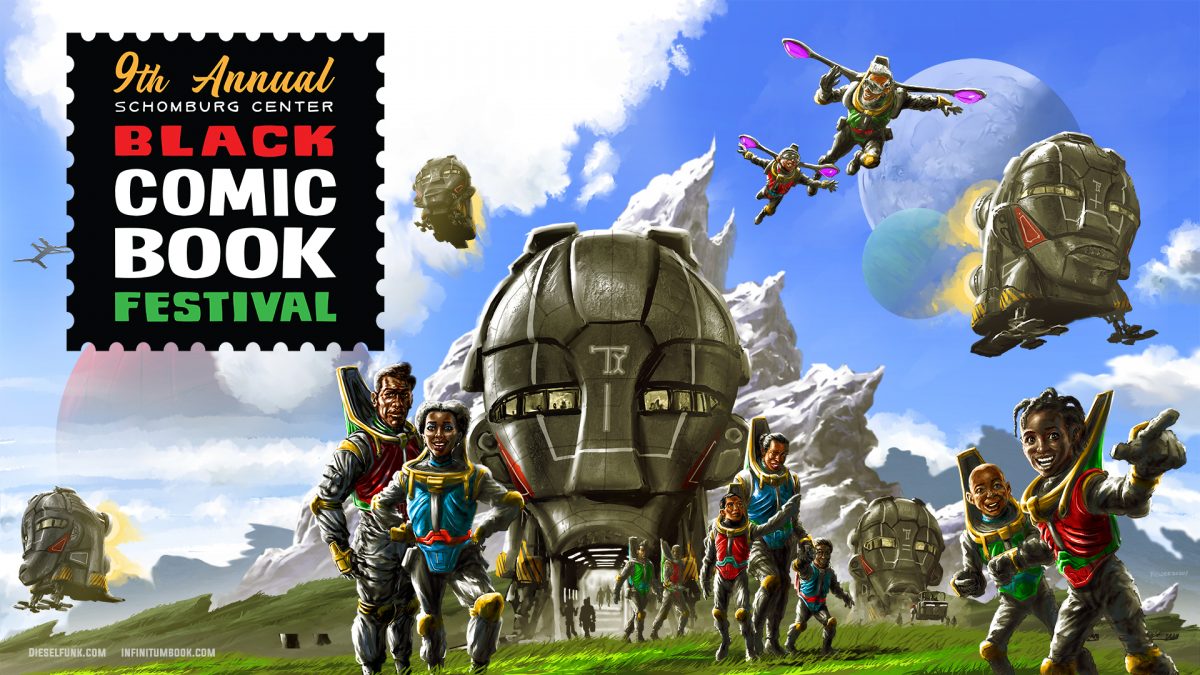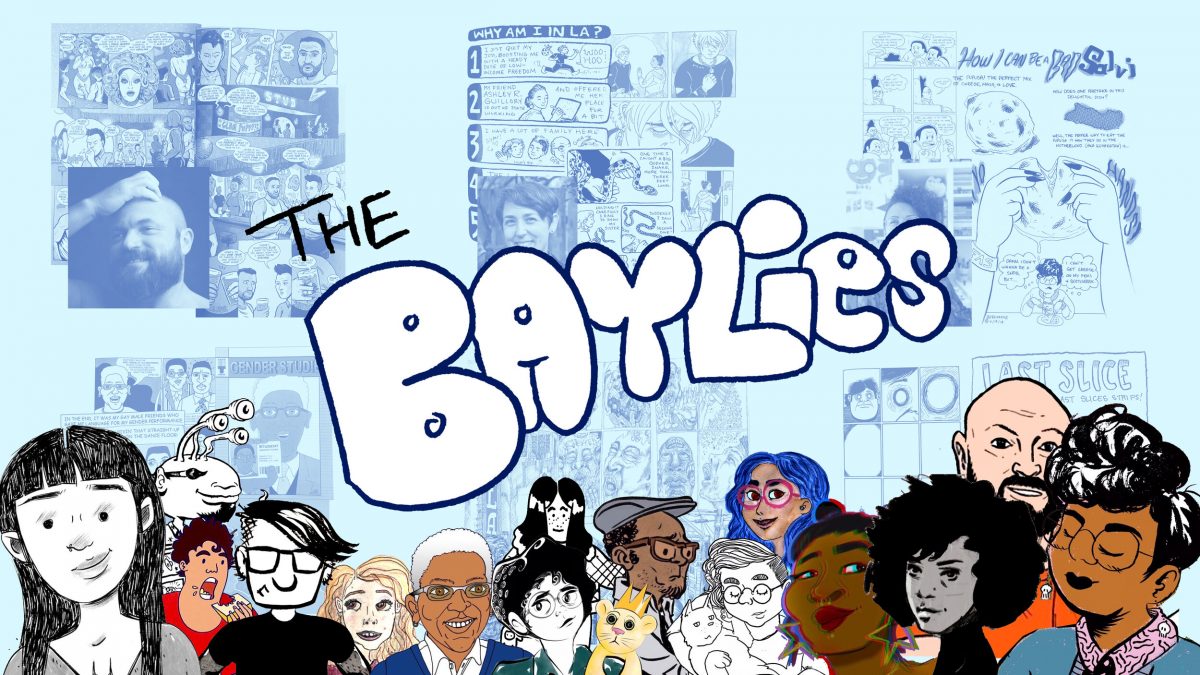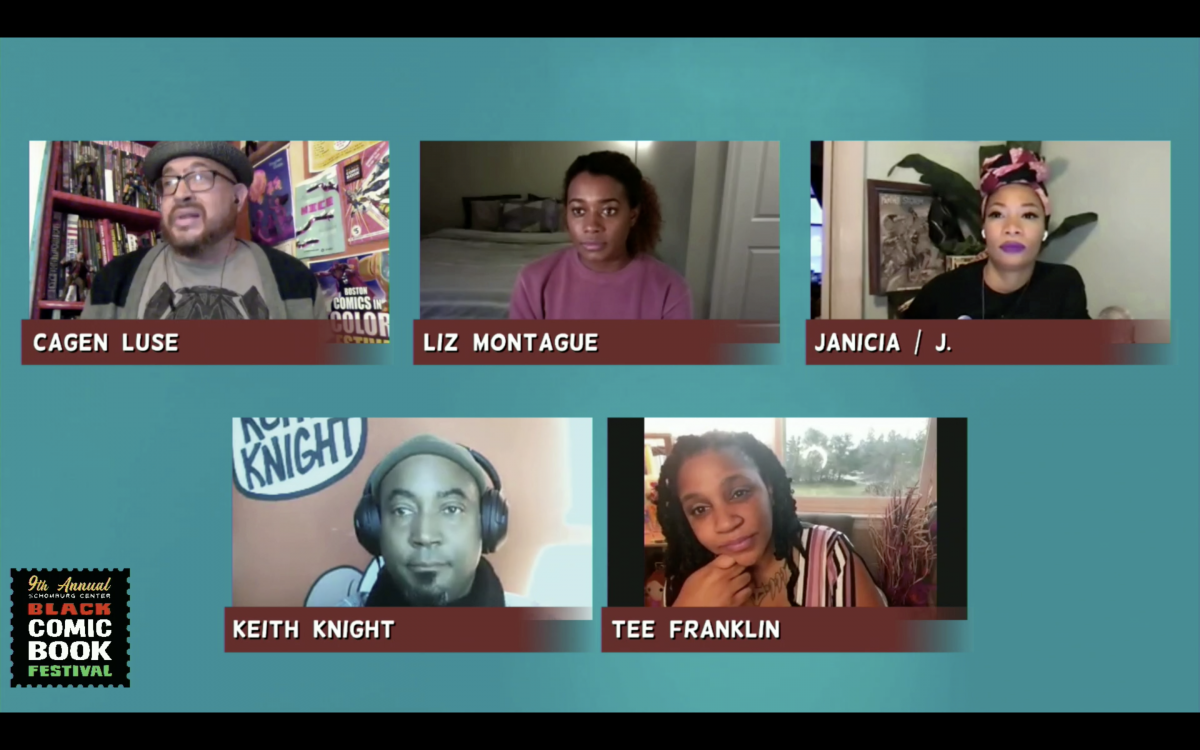
This past week, the Schomburg Center, a research library that is a part of the New York Public Library, hosted the 9th Annual Black Comic Book Festival. The event, which ran from January 13 through 16, was hosted digitally on Vimeo Livestream. It included panels, a virtual cosplay presentation, and an exhibitor marketplace.
If you missed the festival, never fear! The Schomburg Center has made all the events available to re-watch on their events page here.
CBLDF staff were able to attend several events virtually. Below you can find our coverage of just a portion of the panels presented.
Comic Book Writing Workshop
Regine Sawyer founded the small press company Lockett Down Productions, which employs all-female comic book artists with an emphasis on women of color. In this workshop, she demonstrated the “Character Bone Structure” tool that she uses to create characters and for worldbuilding when writing comics or prose.
She has taught the “Character Bone Structure” template to students from elementary through college, making it a useful tool for educators or students to develop depth to their storytelling. The template helps students explore the physical, social, and psychological aspects of a character and their world. In her presentation, Sawyer shared an example of the template that she completed with a class of high school students, an example she created for her short story “Take Me Home,” and then completed an example live with suggestions from viewers.
The presentation concluded with a Q&A where Sawyer shared how she became a comics writer, where she draws inspiration, and some of her favorite comic books and resources.
Learn more about comics support literacy with CBLDF’s free resource, Panel Power.

The BAYlies: A Community of LGBTQ and POC Cartoonists from the Bay Area
The BAYlies panel was an intimate conversation with the two creators of the project, Breena Nuñez and Lawrence Lindell, and the moderator Deirdre Hollman.
As described by Lindell, the idea for The BAYlies was hatched in 2018 on a living room floor in Oakland, CA. Lawrence recognized a vibrant Bay Area community of Queer Cartoonists and Cartoonists of Color and wanted to archive what was happening in the scene. The BAYlies was born out of this idea to document the work as it was happening. Originally started as an Instagram account, it recently completed a successful Kickstarter campaign for a physical volume.
The panel spoke about Zine culture, the do-it-yourself mentality, and giving back to the community. The publisher of The BAYlies, Laneha House, also awards micro-grants to cartoonists. We’re looking forward to picking up Volume 1 of The BAYlies to get a good slice of what’s going on in the Bay Area right now.
The Comic Book Spectrum: A New Era of Industry
This panel was moderated by Regine Sawyer and included Alitha Martinez, David F. Walker, Eric battle, and Vita Ayala. This panel investigated the changing industry and, per the panel description, “the overall effect on creators as well as how we can usher in new crops of professionals as change becomes vaster and vaster.”
The major topic discussed was the changes brought about by the current pandemic. Walker was straightforward in saying, “There aren’t any cons.” He pointed out that for many creators conventions are a revenue source and a way to get back in touch with the comics community. Ayala noticed a trend in the smaller companies being able to switch streams a bit quicker than the larger publishers. Being flexible in the current environment is a necessity.
The conversation moved on to discussing the new generation and the potential for mentorship. Alitha Martinez put it beautifully when she said, “I need to make sure to leave someone behind to pick up my sword when I’m gone.”
The digital age has given more people the opportunities and access to the tools needed to create. However, the need for mentors is real. People are expected to have a base knowledge of working in the industry that isn’t taught anywhere. Ayala added, “we won’t have an industry left if we hide it from each other.”
Martinez put forward her practice of giving floppies to the community when she finishes reading them. Donating them allows kids who wouldn’t normally have access to enjoy them as well. It’s an opportunity to do something good for the community and help foster the next generation of readers and creators.

Make It Plain: Social Commentary Thru Comix
Moderator Janicia Francis led this panel featuring Cagen Luse, Liz Montague, Keith Knight, and Tee Franklin. Francis got things started on the panel by asking when each creator first decided to speak out or what work inspired them to speak out.
COVID-19 and recent social justice work played a big part in the conversation. Luse mentioned that the demand for Black art is up and wondered whether or not that will continue to be the case. Franklin and others voiced concerns that some of the interest may be performative or jumping on the coin of allyship. Hopefully, this will be sustained progress in the industry.
Across the board, panelists highlighted the need for self-care. Because of the heaviness of working with social commentary, Francis asked how they are able to hold onto their joy and stay Black and healthy. The varied answers were all along the lines of celebrating the little things and being easy on oneself.
You Can Still Catch All the Panels!
These panels are only a portion of what was offered. We recommend exploring the festival on your own. It was a great virtual convention and an example of the resilience of the comics community. We hope to be there in person for the 10th year!